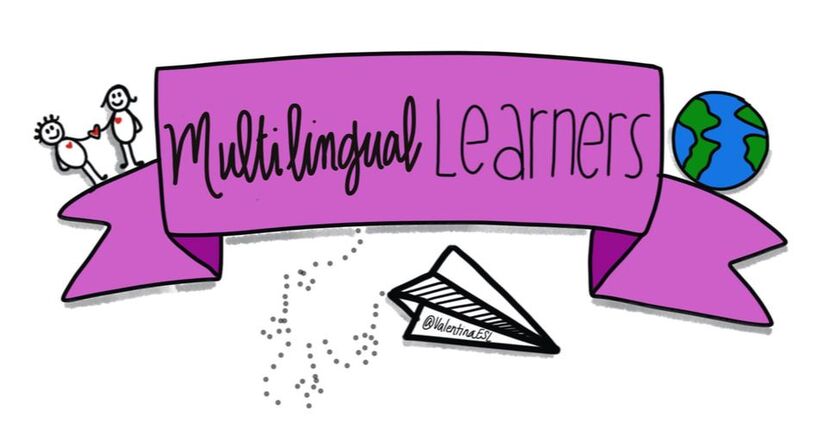|
One thing I know for sure is that before kids can learn in an academic setting, their basic needs must be met. Their bellies must be full, they have to have had a full night of sleep, they must feel safe, and they need to feel that they belong. Maslow's motivational theory contends that what motivates our students do to what they do and behave the way that they behave is the desire to fulfill basic needs. I remember walking into a classroom where a newcomer was isolated instead of sitting in cooperative groups with his peers. It was heartbreaking to me. The child could not speak English yet and was obviously in need of much support. When asked why the child was in isolation, the teacher responded by saying the child was a behavior problem and couldn't get along with his peers. He had only been in the United States for a couple of weeks so far. Can you imagine how many of this child's basic needs were not being met? How can a child begin to learn academic standards when he/she is struggling to feel safe, starving to belong, and striving to communicate and achieve?
We have to assure that our students' basic psychological needs are being met before we can begin to think that they will learn state standards. With this being said, building relationships and knowing each student is then critical. This means so much more than looking at a cumulative records folder. We have to know where students are living, with whom they live, how the family functions, what their situation is at home, etc. This means talking with students and their families and creating true, caring relationships. You might remember learning about Psychologist Abraham Malsow's original hierarchy of Needs when you were in college. I don't know about you, but since college, I haven't heard much about Maslow's Theory. I do, however, hear a lot about Blooms Taxonomy. My problem with this is that I don't believe that we can expect our students to remember, understand, apply, analyze, evaluate, and create if their basic needs are lacking. So often in education, we push for Bloom's Taxonomy but we overlook Maslow's hieracrchy and then we wonder why kids aren't achieving. Why they aren't reaching their potential? We pull out our best lessons and resources yet nothing is working when the answer is in their basic needs. Here is a short description of each and how it applies to English Learners. For our purposes, we will delve into the basic needs since those are the ones that need to be met before students can focus on academics. Basic/Coping Needs 1. Physiological Needs: This is the need for things such as food, shelter, and sleep. When our students are not eating well, that is the first thing on their mind. "I need to eat." "I'm hungry." "Where will I sleep tonight?" "Will we be kicked out of our apartment?" If their mind is on physiological needs, obvisously it can not focus on academics. Building relationships and asking questions helps to find out what our students' lives are like at home. Is the child going home to an empty apartment? Do they have food to eat? Are they babysitting a younger sibling while mom is working late? When I think of ELLs that may struggle with physiological needs, I think of SIFE students and students who come from low socioeconomic households. 2. Safety Needs: This is the need for things such as security, protection, stability, and safety. When fear exists, stress and anxiety begin to grow causing the affective filter to rise. For immigrants who are refugees, this plays a huge role. One that many of us can not begin to imagine. Some students have witnessed war and separation that haunts them and causes fear and anxiety to live within them. Some of our students carry other fears regarding security and protection that are related to family life. Getting to know our students well is the only way to help. 3. Love, Belonging or Social Needs: This need is a big one for ELLs. It includes the need to communicate with others. English language learners can definitely crave this need to communicate. It can be such a stressful time in a young person's life when they clearly know what they are thinking but can not communicate in the language that others will understand. There is also includes the need to belong to a group of friends. For newcomer students, belonging and finding friendships can be a source of tension. When my aunt came to the US, she was 16. She was one of the most popular girls in her hometown in Serbia. But here in the US, she was isolated and lonely. She didn't seem to belong to any group as a high school student. The need to be social and interact with others lives within all humans. When ELs come to the United States, some are ripped away from their social circles and this causes massive amount of stress and sometimes depression. Maslow estimated that only 50% of people are meeting this important need. 4. Esteem Needs: This included the need for a reputation and self respect. This is also the need for students to feel they can achieve and master skills. For English language learners, I equate this to the need to learn the new language. The desire to master the new language and achieve their goals in life. 5. Self Actualization Needs: This is the need to be who you are. Many immigrants experience a confusion with self actualization because of having two cultures. When a child comes to the US with a native culture and learns about the American culture, there can be a struggle with identity. Who am I? Which culture is mine? Can I embrace two cultures? Should I? Do I have to leave my native culture behind and adopt a new culture? Some end up shedding their native culture to fit in with peers. Maslow's theory suggests that people who do things that are bad are trying to fulfill a basic need. For example, if a student's safety needs are threatened they may be violent towards others in an effort to protect themselves. This post has been rumbling around in my head for months and I've been working on it for a while. Really, it's very obvious. I think we just forget once we are in the classroom. We get focused on the content. The curriculum is on our minds. But we lose sight of the reality. Kids can't learn any of it, if their basic needs are not being met. Maslow first. Resources: http://www.simplypsychology.org/maslow.html https://cft.vanderbilt.edu/guides-sub-pages/blooms-taxonomy/
Hi, Valentina.
Valentina
1/31/2017 07:07:39 pm
You are correct. It's never been more important for us to advocate and stand as ambassadors for what we believe to be right and true. Comments are closed.
|
Categories
All
|


 RSS Feed
RSS Feed
